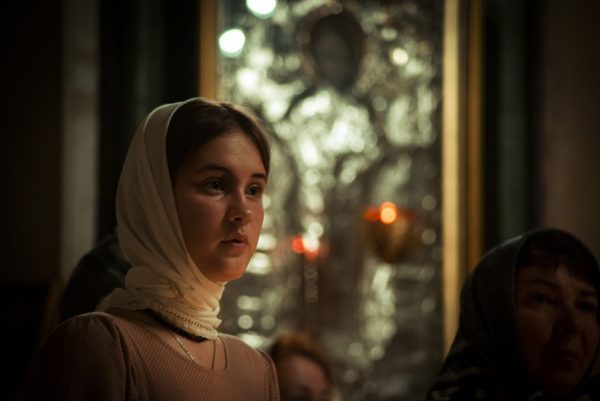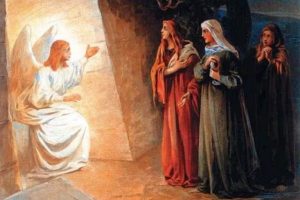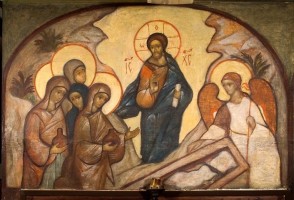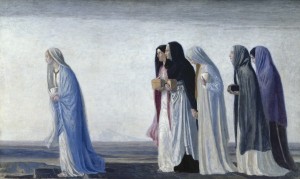I have developed an on-line acquaintance with someone who works full-time with homeless people in a large city in Canada. She sometimes asks me theological questions. Sometimes she tells me a sad story and asks for my prayers. She says of herself that she is Protestant on the outside and Orthodox on the inside.
I get that. Lot’s of people feed from the crumbs that fall from the Orthodox table. I like to spread the crumbs about as much as I can. (I wonder if that makes me a crumby priest?) I have several people in my parish who have converted or are in the process of converting from Charismatic Protestantism to Holy Orthodoxy. Many of these have been referred to me by my Charismatic Protestant teacher/prophet friend (yes, I said prophet—this fellow has an amazing ability to read people. He calls it prophetic gifting, while I call it pastoral sensitivity). It’s a long story (so please don’t judge), but he had a vision of the Mother of God and looked me up in the phone book and called me about five years ago saying, “Do you guys know anything about Mary, Jesus’ Mother? I think she appeared to me. Can you tell me anything about Her?” Since then we’ve been having lunch every week—where I share whatever crumbs that happen to be lying about on my spiritual table. He is still a Charismatic Protestant on the outside, but on the inside—only God knows. He has certainly played an important part in helping several others become Orthodox on both the inside and outside.
My friend who works with homeless people sent me an email this morning asking me to pray for someone whom she has known closely for 16 years who died recently of a fentanyl overdose. May the Lord have mercy on his soul. Loving broken people is, I think, the hardest thing we learn to do as Christians. It’s in many ways an evidence of deification, a fundamental manifestation of Christ-likeness. All of the other virtues are really just aspects of love.
Because I got this email today, the Monday of the week of the Myrrh Bearing women, my response was influenced by some of my reflections on the Myrrh Bearing women: the crumbs that are on my table today. I thought some of you might be encouraged by what I wrote her, so I copied it here. It’s not long.
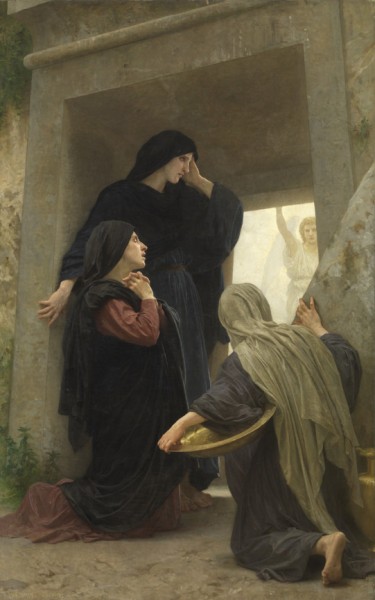
When Joseph of Arimathea and Nicodemus and the Myrrh Bearing Women went to anoint Jesus after the Resurrection, they were not motivated by faith or hope. They were motivated by love. Jesus had told them three times before His Passion that he would rise on the third day. Yet here it is, the third day, and they are coming to anoint his dead body. Love motivated them, not faith, not hope, love. St. Paul tells us that all spiritual gifts are partial and do not remain forever, but faith, hope and love abide forever. Of these three, love is the greatest. Love caused the Myrrh Bearers to see the empty tomb before even the Apostles and to become (as the Church calls them—especially Mary Magdalen) “Apostles to the Apostles.” Love caused them to see angels and to hear the angelic proclamation: “He is not here. He is risen!” Love (not faith, not even hope) was all the human race had to offer at this point. And it was enough, enough for humanity to learn the Mystery kept hidden from the beginning of creation: “The Lamb of God, slain from the foundation of the world” (Rev. 13:8).
I think in our ministry to others, love is sufficient for the miraculous, for God to take care of the the rest, to raise the dead. When we lack faith and hope, when those we try to help lack faith and hope, when the stone is sealed and there seems to be nothing but death inside, love is enough. It’s the offering of the Myrrh Bearers, the widow’s mite, the extra mile, the turned cheek, the mustard seed, the bit of extra oil for our lamps. Love is enough for God to reveal His resurrectional power, to raise the dead. Even when we can’t believe, love enough. God does the rest.












